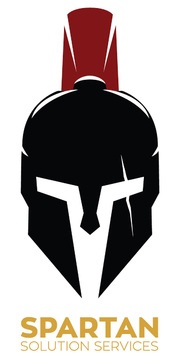Have you ever committed so much of your time and energy to a project only to witness it grow and morph into something so far beyond the original intent that it is unrecognizable?
Believe me when I tell you we have ALL experienced this phenomenon! It causes even the most experienced project management team to question whether success is even an option.
When you are working on a project that could make or break your business you want to do a good job, make the customer happy by coming in on-time and within budget. However, invariably life throws you curveballs like changes or add-ons —scope creep as we call it.
In this article we go deep, get to the heart of the most common project management dilemmas, understand the most common project methodologies, and provide you with answers.
Do Your Projects Go Over Time and Over Budget?
Going over a planned budget is the most common problem most IT managers and CFO's face today. Furthermore, it is the number one reason for failure.
In 2016, less than 50% of projects were completed on time. - Pulse of the Profession 2016 global survey
The alarming fact is that completing a project or any deliverables late often means going over budget as well. There is also the factor that being late will cost your company in terms of damage to your reputation due to over-promising and under-delivering. Is that something you want to be known for? I bet not.
This is not to scare you away from taking on large-scale ventures. These are exactly the kinds of prospects that will help your company succeed and thrive in a competitive market.
Take a hard look at your current methodology and ask yourself these three important questions:
- What factors are causing your work to be late and over budget?
- Is there a flaw in your current management system?
- What can be done differently to create a consistent and reliable outcome?
Scope Creep – The Ultimate Time & Budget Killer
Usually the answer to the first question above is, "scope creep!" Ever the insidious and often unavoidable factor, scope creep waylays even the best-planned project.
During a project, when unplanned or unnecessary changes occur, or a segment of your organization decides to add new features, your timeline increasingly becomes stretched out, eventually costing you valuable time and resources.
Usually scope creep is the result of poor planning and bad estimations. Now, I know you might be thinking of all the “what ifs” such as: “What if the estimate was made with wrong information?” or “What if our technology needs change during the project?” These are valid questions and very common scenarios. In these cases, much of the delay can be managed or eliminated altogether if the methodology you are using is somewhat agile and responsive.
Late projects cause increased costs
If you find yourself in a situation where your project is over deadline there are a few ways to deal with it; either accept and absorb the expensive costs, reduce the scope so that it fits into the budget, or accept that it will not be finished at all. The balance lies in deciding if the increase in cost justifies the end product. This includes factoring in the indirect monetary costs such as damage to your reputation and the relationship with the client going forward. Again, much of this can be avoided by using the proper management methodology.
This isn’t to say that a project cannot succeed if it is late and over budget. If you deliver enough benefits to your organization, all is not lost. However, you must fully understand the value and communicate these benefits precisely to justify the added costs. Wouldn't it be better to avoid that sticky situation altogether?
Scope creep is almost always avoidable if the right PM methodology is utilized.
Choosing The Best Project Management Methodology
The array of viable PM methodologies is enormous, and each one has particular strengths and weaknesses. Many companies wonder what type of planning will best fit their budget and other available resources, and for small to mid-size businesses, this concern is especially relevant.
How To Choose The The Right Project Management Style For Your Business:
- Agile: This method is developed specifically for projects that need significant amounts flexibility. It is made-up of “sprints." These are short delivery cycles that allow for rapid adjustments during the process. If your team is self-motivated and the tasks require less control, oversight and real-time collaboration, it may be suited for this method.
- Scrum: A spin off of the Agile method and as such is iterative in nature. The “Scrum sessions” or “30-day sprints” is the terminology used to determine and prioritize tasks. Interestingly, "Scrum Master" is the term given to the manager. This process works best for small teams that can focus on specific tasks together or independently. Meetings with the Scrum Master are performed to evaluate progress and re-prioritize any tasks that are incomplete or overdue. In this way it does offer more control than Agile.
- Waterfall: A sequential process successfully used in many industries. It is excellent for times when increased control is necessary though it can be very resistant to changes in scope that are not anticipated until much later.A commonly used process for software development, it follows a familiar set of requirements or phases that are executed in a precise order as follows:
- analysis
- design
- testing
- implementation
- maintenance
- Critical Path Method (CPM): A step-by-step method is used for when interdependent activities are involved. A list of events is used with a work-break-down structure (WBS). The timeline to complete the various dependencies, milestones, and deliverables is constructed and adhered to. These are arranged according to critical and non-critical activities. These distinctions are calculated by figuring out which tasks are the “longest” and “shortest” in terms of time to complete. This methodology is resistant to changes in scope and doesn't offer much regarding flexibility.
- Critical Chain Project Management (CCPM): This method focuses on the use of resources within a project instead of project activities as in CPM. Buffers are built in which offer some flexibility as long as safety is not compromised. This is used to improve delivery timelines and decrease budget shortfalls, however, because it is a method adapted from theories of production, it doesn't allow for factors known to improve the outcomes such as intellectual innovation.
If you are like most companies, the ideal solution is a combination of these most popular methods. However, determining how to combine the processes, figuring out which steps to include and, which steps to leave out can be an overwhelming prospect.
One solution to figuring out this problem is in a proprietary PM methodology product created by 5x Technology called IntelligentMethodology™ which has taken the guesswork out of finding the ideal solution by utilizing the very best aspects of each management style.
This unique project management methodology works perfectly to help with the following:
- Quickly identify high-return delivery elements
- Better allocate and focus resources
- Rapidly define tasks that need to be accomplished
- Develop and establish complete quality assurance structure
- Provide the fastest delivery and high-quality results
- Deliver high business value - consistently and reliably
While nothing is 100% perfect for every situation, of all the systems and methods out there —and there are many, IntelligentMethodology™ is the very best way to ensure projects are completed on time and stay within budget.
Your 8 Step Roadmap to Project Management Perfection
Let's be real - since no single PM methodology works perfectly for all businesses, sectors, or industries every single time, here are a few steps that are helpful to effectively apply the PM system you choose.
- Define Roles, Standards, & Policies
- Evaluate
- Hire, Train, and Assign Resources
- Create & Agree on Cohesive Goals & Objectives
- Scope & Budget Control
- Track & Monitor The Status of Your Project
- Measure Goals & Objectives
- Continuous Improvement & Adjustment
“When organizations embrace project, program, and portfolio management practices, they have better outcomes.” - Project Management Institute, 2016.
IntelligentMethodology™ utilizes these core principles along with disciplined action that is combined with customized flexibility. The result is a fast and clear project management organization that makes the most of your time, budget, and human resources.
You’ve Got An Upcoming Project – Now What?
It is absolutely crucial to choose an option that is right for your company. With our 8-step roadmap for success in hand you must be wondering, "what are my next steps?"
In addition to the right PM methodology, planning, leadership, and communication are the biggest indicators of success. The risks and costs (direct and indirect) associated with going over-schedule and over-budget are simply not worth it — especially when all that can be avoided by having an experienced partner like 5x Technology who is equipped to manage all aspects of your project.
“(…) although many individuals are beginning to sharpen their focus on project management as a strategic driver, their organizations aren’t always in step. Organizations that invest in project management waste 13 times less money because their strategic initiatives are completed more successfully.” - Mark Langley, President, and CEO of PMI
Project management is an important part of your business success. IntelligentMethodology™ can ensure that your business mitigates most of the significant risks when undertaking a new project like scope creep, added time and coming in over-budget.
We know that you have to make the best choice for your business needs. If you are concerned about your upcoming project: talk to us – we want to help.
Download our FREE eBook The IT Professional's Guide to Data Analysis & Interpretation, and get started on your journey to successfully improve your business and ensure your projects will always succeed!




